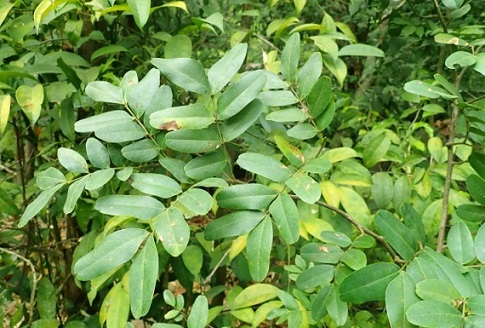The Phytochemical Kaurenoic Acid from Plants of the Copaifera Genus Blocks COVID-19 Virus Replication and Spread
Nikhil Prasad Fact checked by:Thailand Medical News Team Apr 10, 2025 2 days, 18 hours, 56 minutes ago
Medical News: Natural Compound Shows Promise Against COVID-19
An exciting new international study has found that a plant-derived compound called kaurenoic acid could effectively block the replication and spread of the COVID-19 virus. The research was conducted by scientists from the Federal University of Uberlandia (Brazil), University of Leeds (UK), São Paulo State University, University of Franca, University of São Paulo, and the University of Tartu (Estonia). The compound, extracted from plants in the Copaifera genus, has already been known for its anti-inflammatory, antibacterial, antifungal, and even anticancer properties - but this is the first time its antiviral abilities have been studied in depth.
 The Phytochemical Kaurenoic Acid from Plants of the Copaifera Genus Blocks COVID-19
The Phytochemical Kaurenoic Acid from Plants of the Copaifera Genus Blocks COVID-19
Virus Replication and Spread
Kaurenoic Acid Works Against Multiple Variants
In laboratory tests, kaurenoic acid was shown to be effective against two major variants of SARS-CoV-2 - the Delta (B.1.617.2) and Omicron (BA.2) strains. This
Medical News report highlights that the compound exhibited a high selectivity index of 16.1, meaning it targeted the virus effectively while causing little to no harm to healthy cells. The researchers tested the compound on various human cell lines and found that it disrupted the virus’s ability to reproduce after it had already entered the cells.
Stops the Virus from Multiplying Inside Cells
The key finding is that kaurenoic acid interferes with post-entry stages of the virus’s lifecycle. Specifically, the compound reduced the synthesis of viral RNA—essentially blocking the blueprint the virus uses to make more copies of itself. Using a subgenomic replicon system, which mimics how the virus replicates without producing actual infectious particles, the researchers observed a significant decrease in RNA production in the presence of kaurenoic acid.
Reduces the Release of New Virus Particles
When actual infectious SARS-CoV-2 was tested, kaurenoic acid also limited the release of new virions (virus particles) from infected cells. This means that not only does the compound stop the virus from reproducing inside the cell, but it also reduces the amount of virus that can go on to infect other cells or be transmitted to new hosts.
Targets Key Viral Enzymes
The study also involved computer modeling that showed kaurenoic acid likely interacts with the virus’s proteases—enzymes that are essential for the virus to assemble and release new viral particles. By inhibiting these enzymes, the compound effectively disrupts the entire replication cycle of SARS-CoV-2, making it a powerful multitarget antiviral candidate.
Conclusion
The findings suggest that kaurenoic acid could be developed into a promising natural treatment for COVID-19. With its ability to interfere with viral RNA synthesis an
d block the release of new virus particles, it offers a strong foundation for future clinical studies. As new and more dangerous variants continue to emerge, the discovery of such plant-based antiviral compounds provides a hopeful path toward broader, more adaptable therapies. If proven safe and effective in human trials, kaurenoic acid could lead to a more accessible and affordable alternative for COVID-19 treatment in the future.
The study findings were published as an abstract in the peer-reviewed journal: Frontiers in Cellular and Infection Microbiology.
https://www.frontiersin.org/journals/microbiology/articles/10.3389/fmicb.2025.1540934/abstract
For the latest COVID-19 News, keep on logging to Thailand
Medical News.
Read Also:
https://www.thailandmedical.news/news/case-study-highlights-that-covid-19-can-cause-massive-aortic-rupture
https://www.thailandmedical.news/news/covid-19-causes-mtdna-mutations-and-alters-oxidative-phosphorylation-genes-leading-to-mitochondrial-dysfunction
https://www.thailandmedical.news/news/breaking-long-covid-individuals-found-to-have-a-disruption-in-the-critical-brain-bridge-linking-the-brainstem-and-cerebellum
https://www.thailandmedical.news/articles/coronavirus
https://www.thailandmedical.news/pages/thailand_doctors_listings
